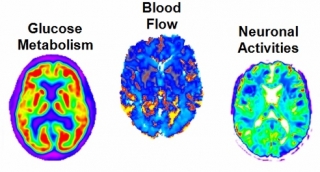“Big Data” study discovers earliest sign of Alzheimer’s
- by 7wData

Scientists at the Montreal Neurological Institute and Hospital have used a powerful tool to better understand the progression of late-onset Alzheimer’s disease (LOAD), identifying its first physiological signs.
Led by Dr. Alan Evans, a professor of neurology, neurosurgery and biomedical engineering at the Neuro, the researchers analyzed more than 7,700 brain images from 1,171 people in various stages of Alzheimer’s progression using a variety of techniques including magnetic resonance imaging (MRI) and positron emission tomography (PET). Blood and cerebrospinal fluid were also analyzed, as well as the subjects’ level of cognition.
The researchers found that, contrary to previous understanding, the first physiological sign of Alzheimer’s disease is a decrease in blood flow in the brain. An increase in amyloid protein was considered to be the first detectable sign of Alzheimer’s. While amyloid certainly plays a role, this study finds that changes in blood flow are the earliest known warning sign of Alzheimer’s. The study also found that changes in cognition begin earlier in the progression than previously believed.
Late-onset Alzheimer’s disease is an incredibly complex disease but an equally important one to understand. It is not caused by any one neurological mechanism but is a result of several associated mechanisms in the brain. LOAD is the most common cause of human dementia and an understanding of the interactions between its various mechanisms is important to develop treatments.
Previous research on the many mechanisms that make up LOAD has been limited in scope and did not provide a complete picture of this complex disease. This study, published in the journal Nature Communications on June 21, factored in the pattern of amyloid concentration, glucose metabolism, cerebral blood flow, functional activity and brain atrophy in 78 regions of the brain, covering all grey matter.
“The lack of an integrative understanding of LOAD pathology, its multifactorial mechanisms, is a crucial obstacle for the development of effective, disease-modifying therapeutic agents,” says Yasser Iturria Medina, a post-doctoral fellow at the MNI and the paper’s first author.
The trajectory of each biological factor was recorded using data from each patient taken over a 30-year period. This process was then repeated 500 times to improve robustness of estimations and stability of the results.
Compiling and analyzing the data took thousands of compute hours to complete, and could not have been possible without sophisticated software and terabytes of hard drive space. Such a data-driven approach to neurology is becoming increasingly important, according to Evans.
“We have many ways to capture data about the brain, but what are you supposed to do with all this data?” he says. “Increasingly, neurology is limited by the ability to take all this information together and make sense of it.
[Social9_Share class=”s9-widget-wrapper”]
Upcoming Events
Shift Difficult Problems Left with Graph Analysis on Streaming Data
29 April 2024
12 PM ET – 1 PM ET
Read MoreCategories
You Might Be Interested In
CEOs have a problem with the truth: How data scientists can help
27 Mar, 2017CEOs and other members of top management have a huge problem with the truth: They rarely hear it, even when …
How a Digital Transformation Can Improve Customer Experience with Big Data
6 Feb, 2018Do you know what your customers want when they visit your website? And do you know what makes them bounce …
Top 5 emerging information security technologies
26 Feb, 2018The war between data defenders and data thieves has been described as a cat-and-mouse game. As soon as the white …
Recent Jobs
Do You Want to Share Your Story?
Bring your insights on Data, Visualization, Innovation or Business Agility to our community. Let them learn from your experience.
Privacy Overview
Get the 3 STEPS
To Drive Analytics Adoption
And manage change




